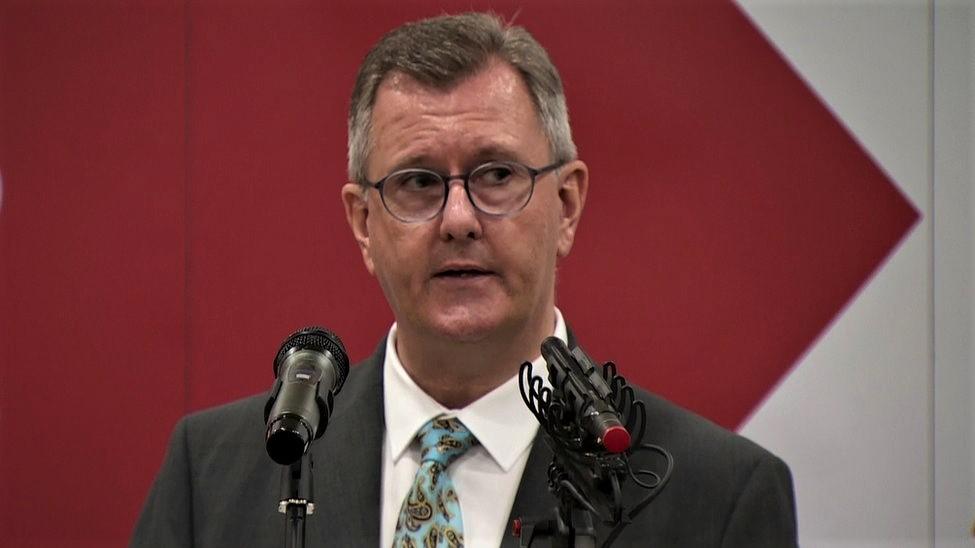Organ donation: NI Assembly passes opt-out bill to next stage
- Published
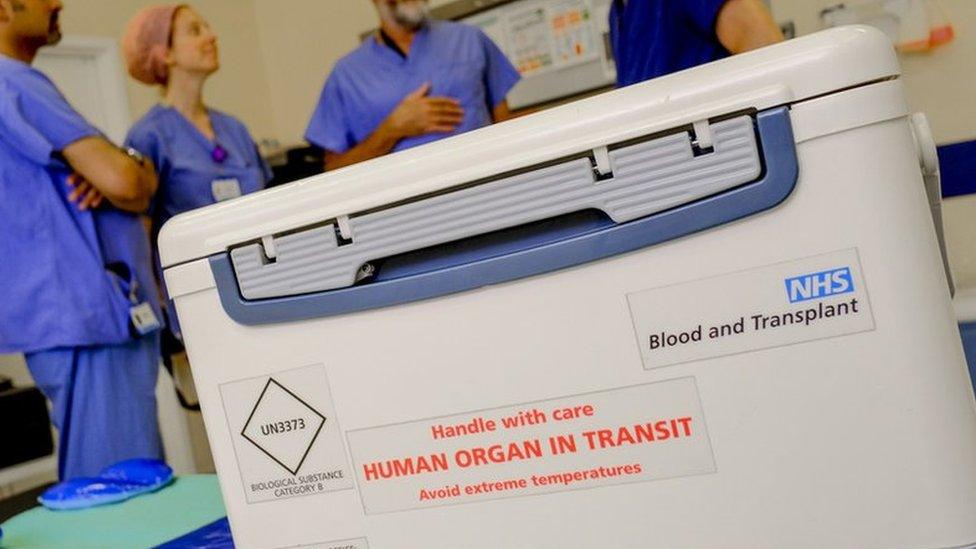
Northern Ireland is the only part of the UK without a soft opt-out system
A major change to organ donation rules in Northern Ireland has passed its second reading at Stormont.
Assembly members approved the bill by 69 votes to six, and it will now go before the health committee.
If passed, the legislation would mean people automatically become organ donors unless they specifically opt out.
Northern Ireland is currently the only part of the UK where an opt-out system for organ donation is not in place.
"One of the things this bill has allowed us to do is to start to have that conversation as to what organ donation means," said Health Minister Robin Swann during the debate.
Until June, the Democratic Unionist Party (DUP) had blocked attempts to pass a bill.
Following talks between First Minister Paul Givan, Robin Swann, who proposed the legislation, and campaigners, Mr Givan announced he had given approval for the legislation to proceed to the assembly.
The lack of opposition would allow for such a bill to become law before the assembly is dissolved ahead of the election due in May.
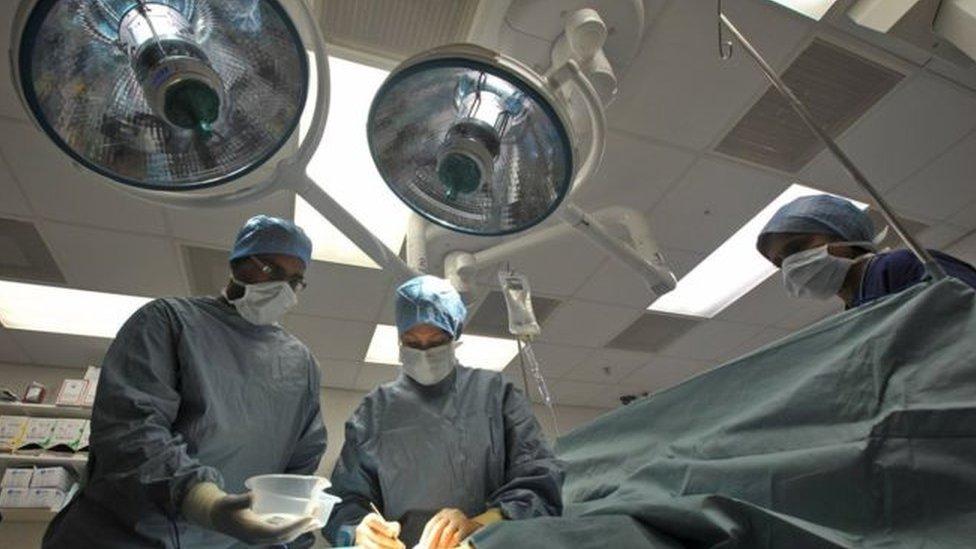
There are currently about 115 people waiting for an organ transplant in Northern Ireland
However, campaigners have raised concerns that the bill might never become law due to the DUP's threat to collapse Stormont over the Northern Ireland Protocol.
Earlier this month, DUP leader Sir Jeffrey Donaldson said his party may quit Stormont "within weeks" if its demands over the protocol are not met,
There are currently about 115 people waiting for an organ transplant in Northern Ireland.
Health Minister Robin Swann said the bill had been "long-awaited by all who are involved in the organ donation process."
He told the assembly the move would increase the number of donors "and ultimately the number of life-saving organs available for transplantation".
The minister outlined how the bill had taken on board lessons from legislation in other parts of the UK.
"This bill will mean that adults in Northern Ireland will be considered potential donors unless they choose to opt out or are excluded," he added.

'A massive step'
Máirtín MacGabhann, whose four-year-old son Dáithí has been waiting for a new heart for three years said the proposals would be "a massive step" forward for Dáithí and others on the waiting list.
"A transplant is used when all other options have been exhausted, it's the last hope for them," he said.
"There is something that our politicians can achieve to increase your loved ones' chances of receiving the vital organ."
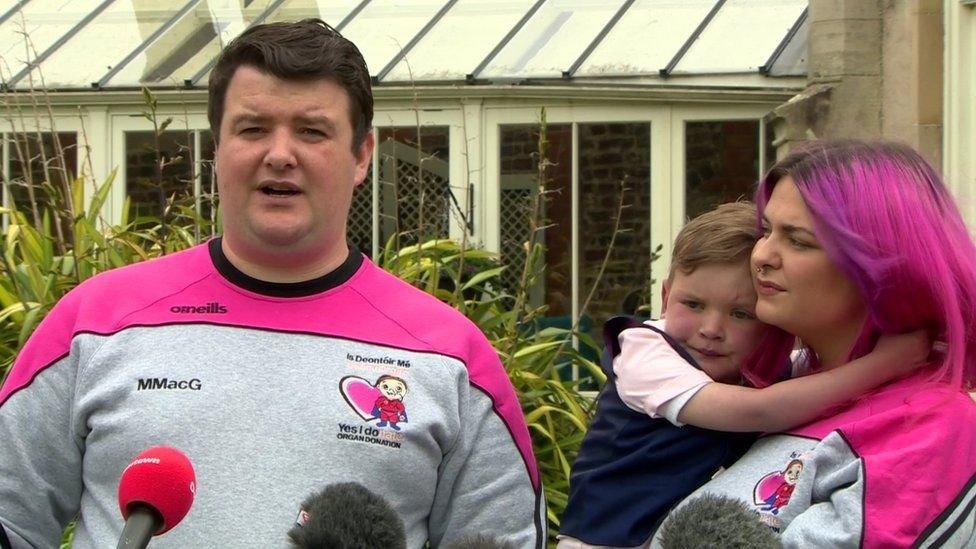
Máirtín MacGabhann's son Dáithí has been waiting for a new heart for three years
He encouraged those in power to keep the political institutions "up and running, so important issues like soft opt out organ donation have a chance of going through".
"I'm just pleading with those politicians to please give these important pieces of legislation a fighting chance because they can change our society so much," he said.
He said if Stormont were to collapse over the issue he would be "absolutely heartbroken".
"We have come so far and gathered so much support politically and it would be an absolute travesty if the likes of soft opt-out organ donation was not to come into law because of the collapse of Stormont," Mr MacGabhann said.

Fearghal McKinney, from the British Heart Foundation, told BBC NI's Sunday Politics programme campaigners would get back up to fight for the legislation if power-sharing were to dissolve before it could pass.
"The gift of life is in the hands of our politicians right now," he said.
In the first year after England introduced an opt-out system, the organs of 296 people were donated.
This accounted for 29% of all donors in the 12-month period and resulted in a total of 714 organs being transplanted.
Transplant surgeon Dr Tim Brown said he did not believe opt-out legislation was the "way to achieve" change.
He said he would like to get to a position where organ donation registration lists were "unnecessary".
"I would like that the norm in society, that if somebody does find themselves in the tragic position of being an organ donor, I would like it to be normal for them to go and donate without any need for them to be on a list," he said.
He said he had difficulty with "the removal of autonomy from an induvial" in the opt-out plans.
"I think education and support around donation is the way to achieve that, legislation is a further step that I don't think is necessary," he added.
- Published19 September 2021
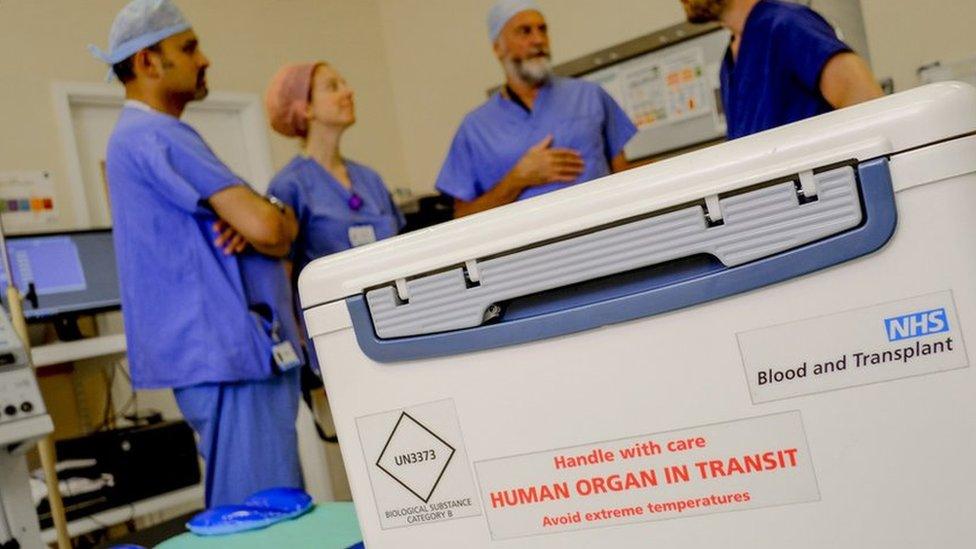
- Published25 June 2021
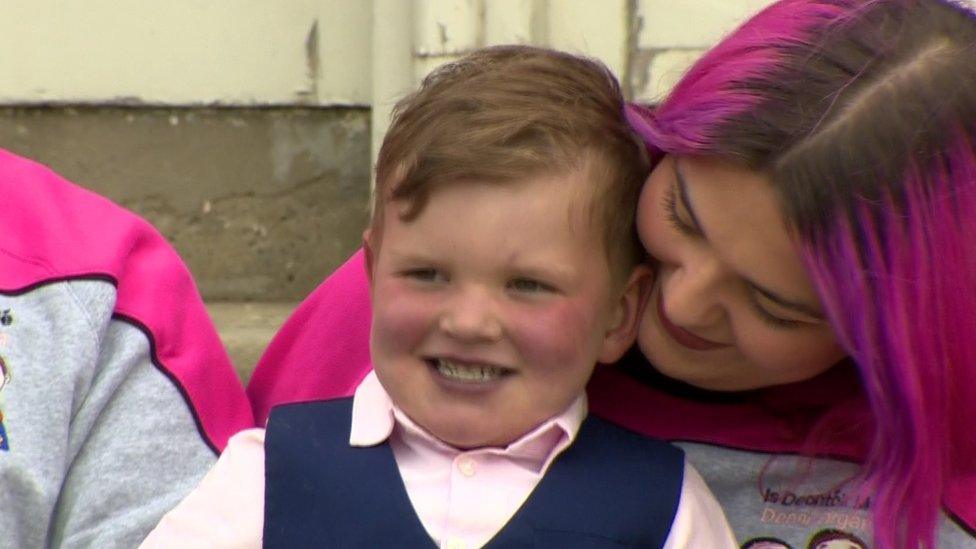
- Published24 June 2021
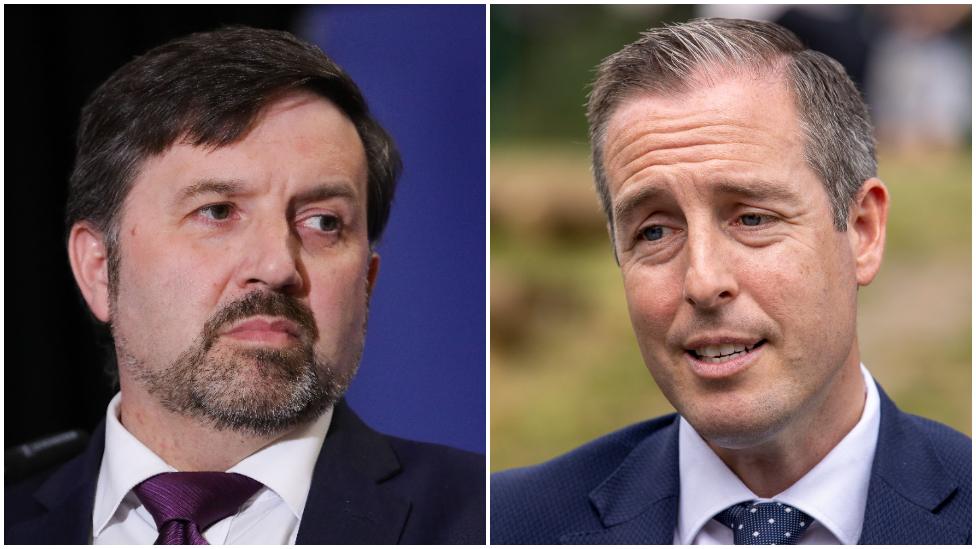
- Published9 September 2021
